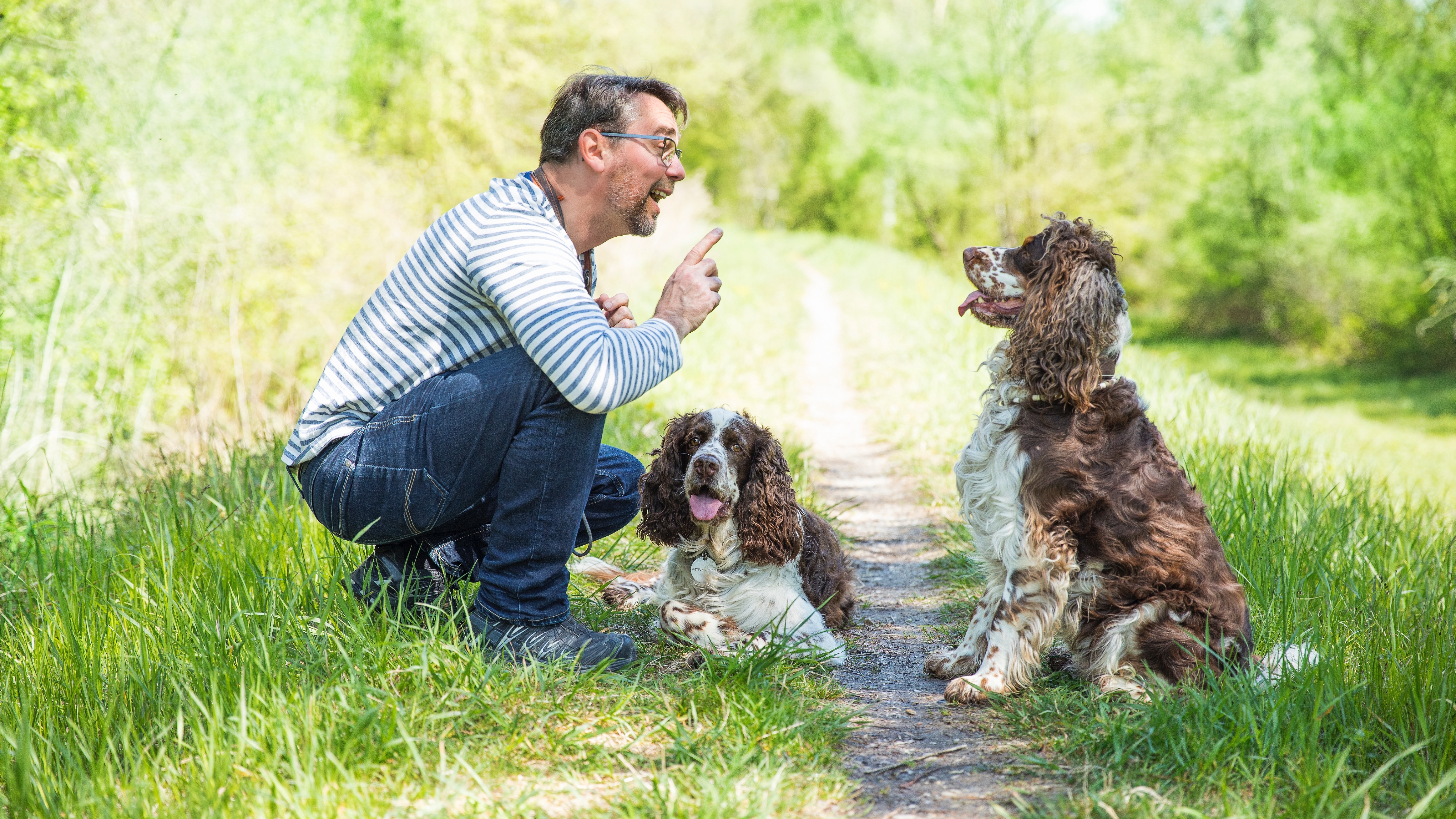
Punishment is out of fashion when it comes to dog training. Positive reinforcement is all the rage — and for good reason.
However, punishment doesn’t necessarily have to be a bad thing. When we say punishment, we aren’t talking about things like hitting or hurting our pups, but things we can do that help decrease undesirable behaviors. Sure, discussing punishment may not be as fun as thinking about which of the best dog toys you’ll buy your pup next, but it’s something that may be worth considering.
Carolyn Martell, an expert trainer and the founder of Good Dog Training, has explained punishment and how to use it properly in more detail in a recent Instagram post.
Martell explains that it’s actually the dog who decides whether something is punishing or not — not us. For a more sensitive dog, even their owner turning away when they bark might be punishing. For some dogs, it may be so punishing that it causes them to stop the behavior immediately. Take a look at how to deal with a badly behaved dog here, for more information.
“Punishment can be as simple as dropping the toy if the dog bites your hand during tug,” Martell continues. “It can be removing the treat on offer if the dog jumps up. It can be stopping the walk when the leash gets tight to punish pulling."
In simple terms, whereas rewards are used to increase a behavior, punishments are used to decrease one. And they’re all around us. “Puppies will punish littermates for a hard bite with a yelp and withdrawal of play or a growl or hard bite in return,” says Martell. Meanwhile, an adult might get a speeding ticket or be written up at work, or a child might get detention or be grounded.
It’s important to remember that what one dog finds rewarding, another might find punishing. Martell uses the example of a nervous dog who comes when they’re called. Their parent enthusiastically whacks them and thinks they’re rewarding their dog for coming, but the dog doesn’t like it, so it actually turns out to be a punishment rather than a reward.
But, as she summarizes in the caption, “Punishment isn’t a dirty word, and you can effectively use punishment without hurting your dog. Remember, punishment is simply something that decreases the behavior. That’s it.”
And, of course, positive reinforcement is still important – here’s the science behind positive reinforcement for dogs for more information.







